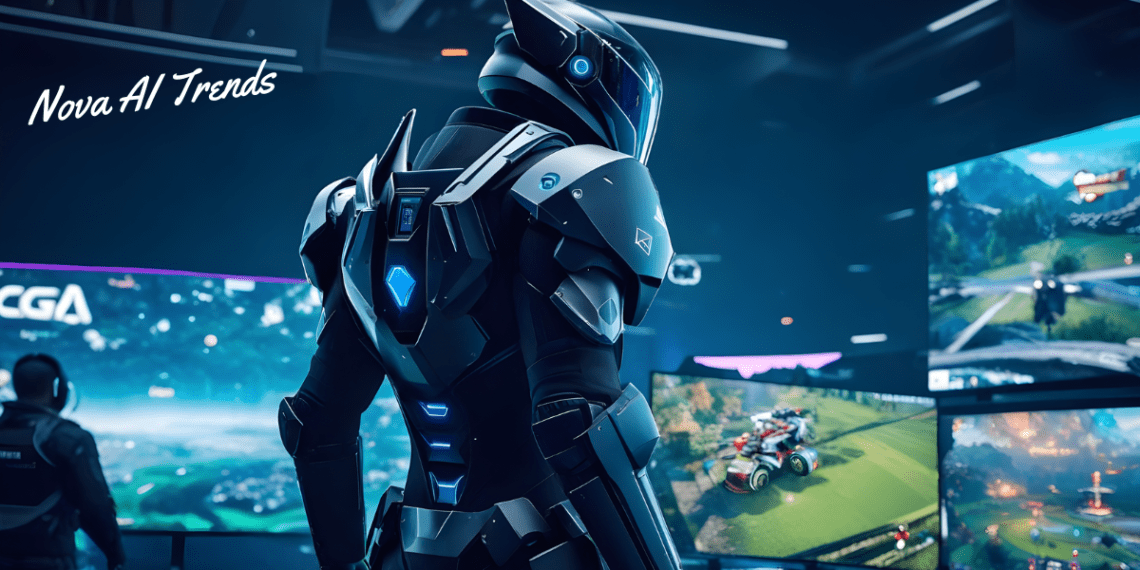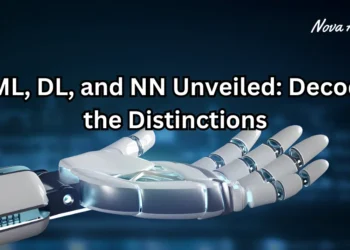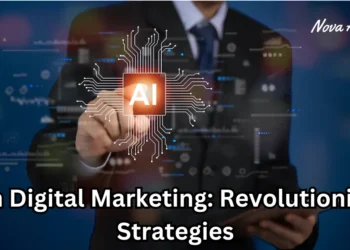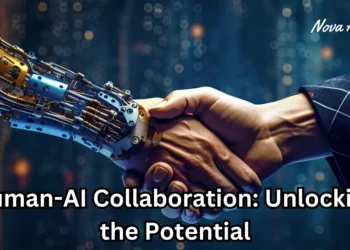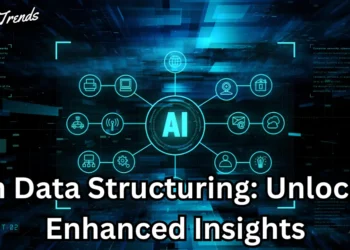AI Movies: Exploring the Impact of Artificial Intelligence on Movies
The enigma of Artificial Intelligence (AI) has perpetually ensnared the human psyche, instigating profound discussions concerning its latent potential and consequential impacts. Across epochs, cinematic visionaries have embraced this intrigue, birthing a mosaic of films that intricately unravel the nexus between humanity and artificial intelligence. This narrative embarks on an odyssey, delineating the evolution of AI in cinema, unfurling the tapestry of movies that mirror our aspirations, apprehensions, and ethical quandaries entwined with this avant-garde technology.
The Formative Epochs


Cognizance Unveiled
As technological tapestries unfolded, so did the thematic intricacies of AI movies. “Blade Runner” (1982), shepherded by Ridley Scott, stands as a paradigmatic opus in this genre. Derived from Philip K. Dick’s opus “Do Androids Dream of Electric Sheep?” the film probes into the notion of artificial entities endowed with emotions and self-awareness, christened as replicants. This cinematic masterpiece set the stage for forthcoming AI narratives, instigating contemplation on the essence of consciousness and the ethical stewardship of sentient mechanisms.
Ethical Quandaries and Human Ethics
The true-to-life investigation of artificial intelligence constantly dives into the pit of moral pickles and moral goals connected to the production of wise robots. “Artificial Intelligence” (2001), under the aegis of Steven Spielberg, serves as an evocative exemplar. The narrative navigates the sojourn of David, an exceptionally advanced humanoid robot, in his quest to fathom humanity, love, and acceptance. The film bequeaths poignant interrogations on the ethical treatment of artificial entities and the blurred demarcations between humanity and technology.
Apprehension of Uprising


Humanization of AI
Contrary to the predominant narrative, not all AI films depict machines as existential threats. Some delve into the prospect of symbiosis between humans and artificial intelligence. Spike Jonze’s “Her” (2013) tells the story of a man captivated by an AI-powered operating system, exploring love and connection. The film humanizes AI, portraying emotional entanglements and obfuscating the boundaries between human and machine affiliations.
Comedic Interludes and Satirical Undertones
AI-themed movies venture into the realms of comedy and satire. “The Hitchhiker’s Guide to the Galaxy” (2005), derived from Douglas Adams’ tome, introduces Marvin, a despondent robot possessing prodigious intellect. This comedic perspective on AI traverses the absurdity of existential crises even within artificial entities, furnishing a lighthearted viewpoint on the assimilation of technology into our quotidian existence.
The Contemporary Tapestry
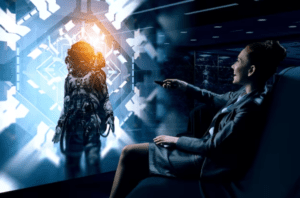

Realism and Theoretical Contemplation
With the strides of AI in the tangible realm, filmmakers grapple with portraying increasingly veritable renditions of artificial intelligence. Explore futuristic visions in ‘Her’ and ‘Ex Machina,’ compelling audiences to ponder the potential consequences of our rapidly advancing technology.
Conclusion
In cinema, artificial intelligence becomes a captivating prism, reflecting our infatuation, anxieties, and ethical quandaries linked to groundbreaking technology. From early portrayals of humanoid automatons to nuanced examinations of sentience, AI films mirror our evolving relationship with artificial intelligence. As technology advances, cinematic explorations of AI persist, offering fresh perspectives on the convergence of human and machine intellect.

